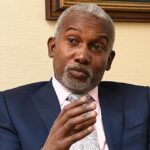Against better judgement and admonition, President Allassane Dramane Ouattara of Cote d’Ivoire, who has been in power since 2011, is pressing ahead with his decision to run for a third term in office in the country’s upcoming general elections scheduled for the 31st of this month.
The 78-year-old Ouattara joins a disturbing political trend in West Africa where leaders seek to extend their rule in contravention of constitutional term limits. Similar developments have happened in Gambia, Guinea and Togo which signal a major setback to the democratic process in the region.
In the case of Cote d’Ivoire, President Ouattara’s decision is ironic. Earlier this year, in March, he had announced that he will not be seeking a third term once his constitutionally prescribed two terms come to an end for which he was roundly praised, both within and outside his country.
But in August, he reversed this decision following the death of his Prime Minister, Amadou Coulibaly, who was widely considered as his successor. A disputed constitutional amendment was then pushed through and ratified by the country’s highest court to pave way for President Ouattara to be eligible to seek a third term. The ruling party obliged the president by nominating him for the October 31st general elections which he accepted.
Taking the irony further, Ouattara was the central figure and beneficiary of the joint international efforts that ousted former Ivorian president Laurent Gbagbo when he tried to extend his stay in office by cancelling the elections which Ouattara was adjudged to have won. The reason provided by Gbagbo was that Ouattara who had served as Prime Minister of Cote d’Ivoire was from neighbouring Burkina Faso.
Gbagbo’s recalcitrance despite entreaties and pressures from within the country and outside led to a civil war in which over 3000 people lost their lives and brought Cote d’Ivoire to its knees economically.
It took the intervention of France, the former colonial ruler, to remove Gbagbo and install Ouattara in power for which the Ivorian people voted him.
It is a matter of regret, therefore, that one who was the principal beneficiary of this unprecedented effort to restore the democratic process in Cote d’Ivoire, could seek to truncate it by following the same route that Gbagbo took.
Already, the ripple effect of President Ouattara’s ill-considered decision is being felt in Cote d’Ivoire. The opposition parties and political action groups are mobilizing Ivorians to protest against the action and to boycott the elections. Their reason, which is justifiable in some ways, is that with this move by Ouattara, the elections can never be expected to be free and fair as the outcome will be a foregone conclusion in favour of the president.
Although President Ouattara claims that his move to seek a third term in office was covered by the constitution, the present circumstances and political antecedents in Cote d’Ivoire dictate that he should have been more circumspect in reaching his decision.
President Ouattara hardly needs any reminding that the wounds of the last political impasse in Cote d’Ivoire have not yet fully healed. His decision to seek a third term under the circumstances would likely reopen those wounds and even create more in his country.
Although it seems too late to dissuade President Ouattara from his decision having entered the race for the 31st October elections, it behoves on the regional body, the Economic Community of West African States (ECOWAS), African Union (AU), France, with its considerable influence in the country, and the international community to monitor keenly developments in Cote d’Ivoire over the next few weeks. This is with a view to be pro-active in the event of any untoward fallout before and after the elections.
As one of the stable and more economically prosperous countries in the sub-region, Cote d’Ivoire should not be allowed to experience another political convulsion within just a little over a decade from the last one.

 Join Daily Trust WhatsApp Community For Quick Access To News and Happenings Around You.
Join Daily Trust WhatsApp Community For Quick Access To News and Happenings Around You.


